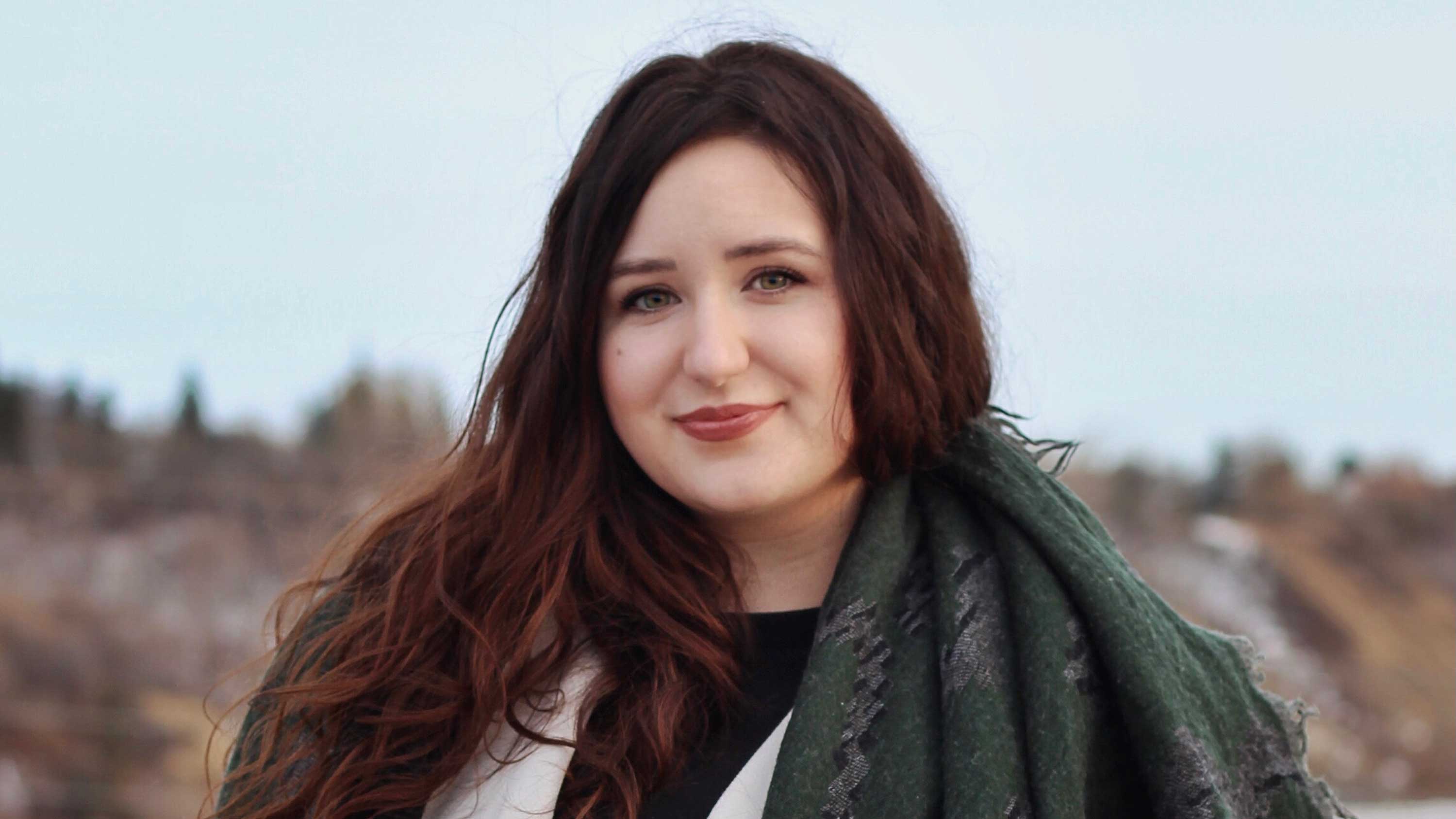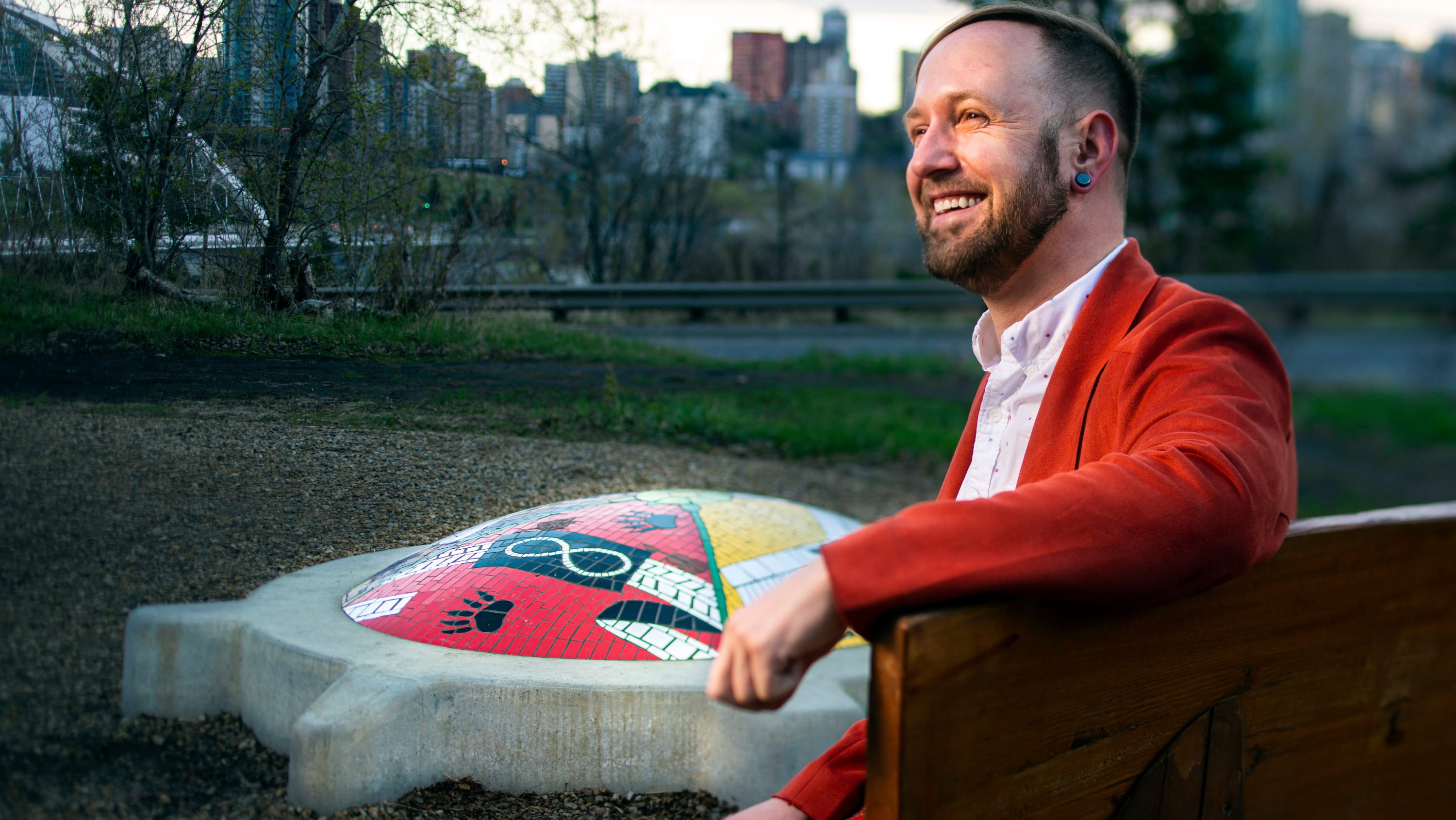Pronouns are a matter of life or death for Keith King, a registered nurse who identifies as two-spirit and Métis.
“When I greet a new patient I’ll say, ‘Hi, my name’s Keith, I’m a registered nurse and my pronouns are he/him. What can I do for you today?’” King said. “And that just sets the stage for the conversation in case that is an issue.”
That simple introduction has led some young patients who came in for routine medical care to open up about their gender dysphoria, King said, so he could direct them to the right medical and mental health supports. A few have come back later to tell him it literally saved their lives.
“If that door was just open for every one of them, it could make a huge difference in how long people struggle,” King said.
King will share this and other tips at the Inclusive Health Conference on March 13. Organized by University of Alberta students, the conference is open to community members, students and health-care professionals—who can even earn professional development credits for attending the sessions.
The goal is to make seeking medical care a safer experience for members of the lesbian, gay, transgender, queer and two-spirit community. Two-spirit refers to an Indigenous person who embodies both a masculine and feminine spirit. King noted that, despite their important contributions to the world, LGBTQ2S+ Canadians are more likely than other Canadians to attempt suicide and experience developmental health disorders, and even face a higher risk for certain chronic illnesses, due to multiple factors including stigma.
“Health care is a right, but the research shows there’s a gap in outcomes for this marginalized population,” said Michelle Anderson, a fourth-year student in the Faculty of Medicine & Dentistry and president of the Sexual and Gender Advocacy Committee, which runs the conference. “This conference is really filling a specific niche within medicine for quality information.”

Seemingly small changes can make a big difference
King, an assistant teaching professor in the Faculty of Nursing, is also completing his PhD and works in sexual and mental health clinics in Edmonton. He will co-present with Julia Chronopoulos, assistant clinical professor in family medicine and co-ordinator of the Rainbow Health Clinic at MacEwan University Health Centre.
“We will share hands-on skills that health-care providers can incorporate into their practice to make the way that they teach and learn and work with sexual- and gender-diverse people safe,” King said.
While Alberta Health Services has inclusive, patient-focused guidelines for health-care providers, it can sometimes be hard to adopt new practices, King said.
“I try to explain it from a relational lens, to build empathy,” King explained. “How much does it cost you to change your language? What might it cost the person who is misgendered? How might it affect their health?”
“Usually for health-care professionals, when they realize that the patient may not access care or may delay care, it helps the ball to drop.”
Five tips for health-care professionals
Here are some of King’s top tips for health-care professionals and others to use when looking to be inclusive:
Avoid heteronormative assumptions.
“A prime example would be assuming that someone is straight and asking them about their wife or girlfriend, husband or boyfriend, while taking their medical history,” King said. “Or assuming that I have HIV because I have sex with men.
“That’s not OK.”
Avoid misgendering.
“Sometimes for trans folks, their medical record may not match their gender identity,” King said. “A frank, kind and compassionate conversation is much better than using incorrect pronouns, or subjecting the patient to unnecessary tests or examinations to try and determine their gender.”
State your pronouns and invite others to share theirs.
“It's about being open and giving patients permission to initiate those conversations on their own,” King noted.
“I sometimes struggle when someone uses they/them, because it’s hard to break those language patterns, so I just use their name,” King said. “It helps me to not make that mistake.”
Don’t make a big deal if you do make a mistake.
“We all make mistakes; it’s very human,” King said. “Quietly and quickly apologize and try not to do it again.”
Examine your own gender and sexuality.
“If you’re a cis-gendered heterosexual person, and you’re super comfortable and you’ve thought about that position that you occupy, it opens an opportunity to imagine how someone in a different position might experience the world.
“The conference is all about building empathy so health-care providers can serve their clients better.”
Gender, sexuality and healing
The Inclusive Health Conference had to be cancelled last year because of COVID-19, but since it will be online this year, Anderson said they are seeing registrations coming from across North America.
“My vision is for LGBTQ2S+ community members to be able to access health care without fear, and it’s not just pockets of the health-care system that are safe for them,” Anderson said.
King has practised nursing in Australia, Great Britain and other parts of Canada, but it was through exploring his Indigenous culture at home in Alberta that he found his true calling, and he feels a responsibility to share what he has learned with future healers.
“It was life-saving knowledge to learn from Elders about other genders that have always been present and acceptable in my culture,” said King, who is an Alberta Indigenous Mentorship in Health Innovation Network mentee.
“I always knew I was a healer—I became a nurse, my mum’s a nurse, my grandmother was a nurse,” King said. “Accepting that my gender and my sexuality are a part of that role was a really transformative moment in my personal experience.”
